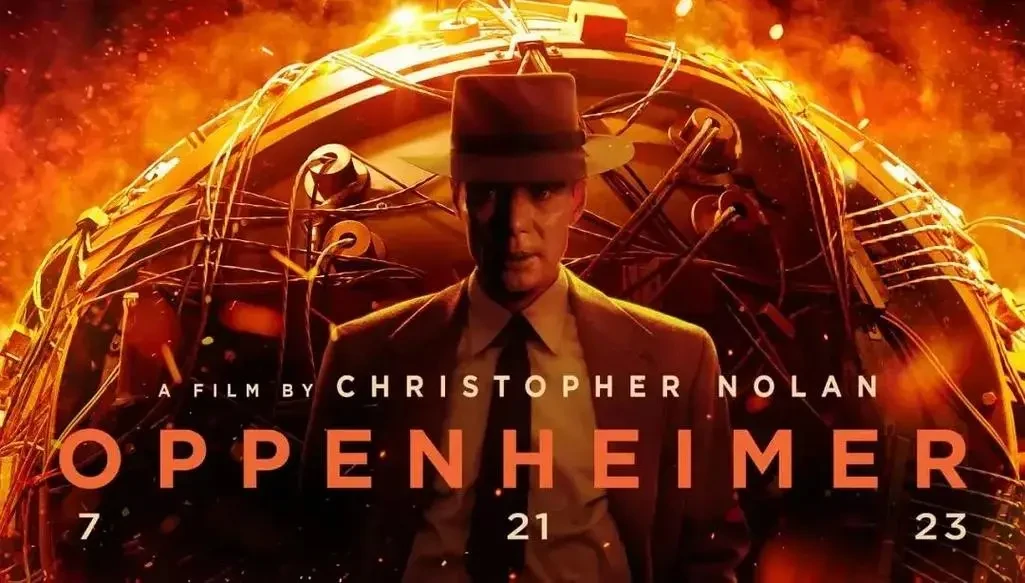
Oppenheimer, a movie inspired by J. Robert Oppenheimer, has profoundly influenced viewers by offering a gripping portrayal of the life and work of J. Robert
Oppenheimer illuminated the complexities of his role in the development of the atomic bomb and its moral implications. Utilizing AI to create PowerPoint presentations about movies revolutionizes the traditional approach, offering unparalleled efficiency and creativity. By harnessing AI algorithms, users can swiftly gather data, analyze film content, and generate visually stunning slides. With AI PPT makers, crafting dynamic presentations become streamlined, allowing presenters to focus on delivering compelling narratives and insights, ultimately captivating audiences with the magic of cinema. In this blog, we will dive into the movie Oppenheimer and explore how to make a PPT presentation about movies.
What is the movie Oppenheimer?
Oppenheimer is a 2023 U.S.-U.K. biographical thriller written and directed by Christopher Nolan, based on the biography Oppenheimer's Biography by Kay Bird and Martin J. Scheven, which dramatizes American theoretical physicist Robert Oppenheimer's involvement in the development of the atomic bomb; the starring cast includes Killian Murphy, Emily Blunt, Matt Damon, and Robert Downey, Jr.
At the 96th Academy Awards, Oppenheimer received a leading 13 nominations, winning seven: Best Picture, Best Director, Best Actor for Murphy, Best Supporting Actor for Downey Jr., Best Film Editing, Best Cinematography, and Best Original Score.

The main influence of the film Oppenheimer:
1. Raising historical awareness:Oppenheimer was able to draw attention to the story of J. Robert Oppenheimer and the Manhattan Project, introducing audiences to a crucial period in history and shedding light on the complexities of scientific innovation during wartime.
2. Inspire ethical reflection: By exploring Oppenheimer's role in the development of nuclear weapons and the ethical dilemmas he faced, the film could spark conversations about the ethical implications of scientific research and technological advances.
3. Discuss political discourse: Through Oppenheimer's involvement in the Manhattan Project and his subsequent conflicts with government authorities during the Cold War, the film could stimulate discussions about political power, surveillance, and the suppression of dissent.
4. Scientific impact: The movie could highlight the importance of scientific research and innovation while also raising awareness of the potential dangers and ethical considerations associated with certain scientific discoveries.
5. Shaping cultural reflection: It could inspire audiences to critically examine the past and consider its implications for the present and future, fostering a deeper understanding of the human experience and our collective responsibility to shape a more peaceful world.
Which elements should be considered when having a presentation about the film Oppenheimer?
1. Biographical Background: The presenter should give an overview of Oppenheimer's life, including his early years, education, and career leading up to his contribution to the Manhattan Project. Highlight key milestones and accomplishments that shaped his character and contributions to science.
2. Manhattan Project: Presenters should explore Oppenheimer's pivotal role as the scientific director of the Manhattan Project. Discuss the context of World War II, the race to develop atomic weapons, and the ethical dilemmas faced by scientists involved in creating such destructive power.
3. Scientific Contributions: Dive into Oppenheimer's scientific achievements and his significant work in theoretical physics. And explain his theories and research that laid the foundation for the development of nuclear weapons.
4. Personal Struggles and Conflicts: Delve into Oppenheimer's complex personality, including his intellectual brilliance, political activism, and personal struggles. Presenters can also discuss some of his conflicts, his experiences with McCarthyism, and the impact of his involvement in the atomic bomb project on his conscience.
5. Ethical and Moral Considerations: Explore the ethical implications of Oppenheimer's work and the broader consequences of nuclear proliferation. Discuss debates surrounding the use of atomic bombs on Hiroshima and Nagasaki, as well as Oppenheimer's later regrets and advocacy for nuclear disarmament.
6. Discuss the Influence: Reflect on Oppenheimer's output in science, politics, and society. Discuss his post-war career, his contributions to academia, and the ways in which his work continues to shape scientific research and public policy today.
7. Add some visuals: Incorporate visuals such as photographs, archival footage, and diagrams to enhance your presentation and provide context for Oppenheimer's life and work. The presentation can also use multimedia elements to engage the audience.
8. Provide Interactive Elements: Encourage audience participation through questions, discussions, or interactive activities related to Oppenheimer's legacy and the broader themes of science, ethics, and responsibility.

How do you create a presentation about films?
1. Choose a film: Choose a film that you are passionate about or that has a significant impact on your audience. Consider factors such as genre, theme, and audience preferences.
2. Outline your presentation: Decide on the structure and content of your presentation. Examples include introduction, plot summary, characters, theme, music, commentary, reflection, etc.
3. Add appropriate visuals: While creating PPT presentations, the presenter can prepare some visuals, including images, clips, quotes, and other multimedia elements to enhance your points and keep your audience engaged. Make sure that your visuals are well-designed and visually appealing.
4. Practice your presentation: Rehearse your presentation several times to ensure smooth delivery and confidence. Pay particular attention to your tone, pace, and body language. Practice timing your presentation to ensure you stay within the allotted time.
5. Ensure audience participation: Encourage audience participation by asking questions, inviting discussion, and soliciting opinions. Include interactive elements such as polls or group activities to keep your audience engaged and attentive.
6. Be prepared for questions: Anticipate potential questions from your audience and prepare thoughtful responses. Be knowledgeable about the film and ready to provide additional insight or clarification as needed.
7. Ask for feedback: After your presentation, solicit feedback from your audience to gauge their reactions and identify areas for improvement. Use this feedback to refine your presentation skills and improve future presentations.
Use Smallppt to create an effective presentation about films.
If you’re looking for an effective and convenient way to make a presentation, you can try Smallppt. We provide compelling templates and easy operation to you, making your presentation leave a lasting impression.
Smallppt's AI PowerPoint is a game-changer in the realm of professional presentations. Its innovative features, collaborative capabilities, and focus on aesthetics redefine the standards of presentation creation.
It transforms the dull task of presentation creation into a seamless and delightful process. With a focus on design, content, and collaboration, Smallppt ensures that professionals can effortlessly craft presentations that leave a lasting impression. By making a presentation with AI, you can elevate presentations, captivate an audience, and redefine professional narrative.
How do you use Smallppt to create a PowerPoint presentation about films?
1. Choose a film and a theme: First, we should choose a film that we want to show. Look for information about it and think about the topic of your presentation. Make an outline for your presentation, organizing the information logically.
2. Type your topic into Smallppt: After you have found the topic and the main content, you can type your topic on the Smallppt. Smallppt would create an outline according to the topic you've typed. You can change the AI-generated outline as you like.
3. Choose templates and add visuals accordingly: Choose one of the templates you like best that Smallppt provides, you can also add some relevant images, graphics, and videos to enhance your presentation. Look for visuals that represent the films, such as posters, teasers, star images concept art, etc.
4. Create and modify slides: Click on the "Generate" button and wait for Smallppt to create slides for you. Smallppt would provide simple and focused slides, with a clear title and concise bullet points or short sentences. You can modify them according to your topic and content.
5. Address common audience questions: Anticipate questions your audience may have about the film and address them in your presentation. Your question should also focus on the diversity within the film and the story.
6. Review and download the slides: You can check the slides by going through them several times. If you are happy with them, download and save them.
7. Practice and review: Practice makes perfect. Rehearse your presentation to ensure smooth delivery and to familiarize yourself with the content. Check your slides for accuracy, clarity, and coherence.
8. Encourage audience participation: In addition to creating a compelling PowerPoint presentation, audience feedback is very important. Encourage engagement by inviting your audience to ask questions or share their own experiences of the film.
If you want to know more? Try Smallppt and step into the journey of AI-generated PPT!



